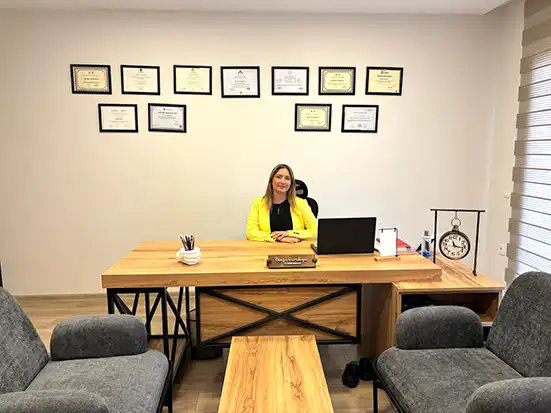Attention Deficit and Hyperactivity Disorder
Psychological Counseling

MODERN TREATMENT APPROACHES IN ADHD
The Impact of Childhood ADHD on Adulthood
Attention Deficit Hyperactivity Disorder (ADHD) is a neurodevelopmental disorder that often begins in childhood and is characterized by distinct features such as lack of attention, hyperactivity, and impulsivity.
This disorder can cause difficulties in functionality and social interactions in an individual's daily life.
The psychological basis of ADHD is associated with genetic factors as well as imbalances in brain chemistry and neurological function disruptions. For example, irregularities in neurotransmitters like dopamine and norepinephrine can contribute to the symptoms of ADHD. Additionally, environmental factors, prenatal or postnatal complications, family environment, and stress can also play a role in the development of ADHD.
The symptoms of ADHD are categorized into three groups:
1. Inattention: Symptoms include a short attention span, distractibility, easy boredom, difficulty focusing on details, and trouble completing tasks.
2. Hyperactivity: Symptoms include being unable to stay still, restlessness, being active, constantly fidgeting with hands or feet, speaking loudly, and constantly moving.
3. Impulsivity: Symptoms include interrupting suddenly, not waiting or moving before one's turn, acting without thinking, and engaging in risky behaviors.
The symptoms of ADHD can negatively affect an individual's academic success, social interactions, and overall functionality. This disorder can lead to difficulties at school, problems at work, disruptions in friendships, and low self-esteem.
Treatment for ADHD should be personalized and can include various approaches. These treatments may include medication, supportive therapy, psychodynamic psychotherapy, cognitive-behavioral therapy, educational and learning strategies, family counseling, and social skills training. Early recognition and effective management of ADHD can improve an individual's quality of life and enhance functionality.